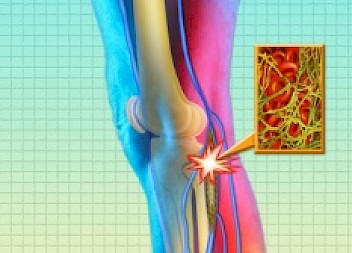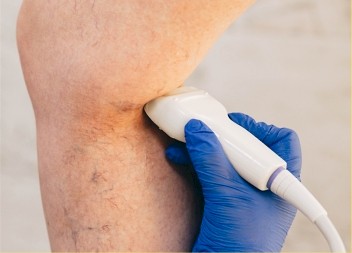Untreated DVT (blood clot) can lead to pulmonary embolism and death. Untreated DVT can make a patient susceptible in the future to ulceration in the affected part of the body, and also to pulmonary hypertension which can affect ability to work and to look after yourself.
DVT compensation can be claimed where there has been inappropriate advice given concerning treatment options and the risks and benefits of the various options, where there have been excessive delays in providing you with treatment, such as blood-thinning medication, or where there has been any substandard care that amounts to actual Medical Negligence.
Do contact our friendly team of specialist lawyers at Medical Solicitors. We conduct most of our Clinical and Medical Negligence claims under ‘No Win, No Fee’ agreements, also known as Conditional Fee Agreements. So, our clients do not have to worry about how they might possibly afford to pay for the cost of DVT compensation claims for failure to treat DVT or delay in diagnosis and treatment of DVT. You have nothing to lose in speaking to us.
If your doctor fails to detect a blood clot in your body then you may have a medical negligence claim for failure to treat DVT.
Failure to treat DVT promptly can cause severe, long-lasting injuries and consequent financial hardship. You will need a specialist Medical Solicitor for failure to treat DVT to get compensation to help you cope financially.
What is DVT?
Deep Vein Thrombosis (DVT) is when a blood clot develops in the deep veins of the legs or pelvis and, less often, elsewhere, such as an arm or in the chest. DVT can cause the blood flow in the affected area to be restricted, leading to pain and swelling (usually in the legs). Parts of the clot can break off and travel around the body. This is called an ‘embolus’). If it ends up in a lung, it can cause a ‘pulmonary embolism’.
If you suffer from both DVT and Pulmonary embolism, they are referred together as ‘VTE’.
VTE is a leading cause of death and disability in the world (10million cases annually).
What are my risks of getting a DVT?
These are:
- Following surgery or other prolonged inactivity (such as sitting for six or more hours on a plane). Do you recall the story of the 20-year-old man who developed a blood clot after 12 hours sitting playing computer games?
Other risk factors are the following:
- a history of having suffered DVT previously
- Smoking
- Obesity
- Pregnancy
- increased age
- some cancers, and
- kidney problems.
Because of the clear risk of DVT after surgery, doctors are under a duty of care to carefully consider your individual risks of developing DVT. Doctors should take into account the risk factors listed above.
How do I prove that negligence caused my DVT?
DVT is not always the result of negligence. A doctor may look after you reasonably, and you may still develop DVT.
What is a reasonable standard of care for DVT?
In many DVT cases, the standard of care may require a doctor to:
- prescribe blood thinners. If you have a high risk of DVT, you will be prescribed blood thinners (anticoagulants or antiplatelets).
Failure by a doctor to prescribe blood thinners for a patient with planned surgery and a high risk of DVT would be negligent practice in the UK.
- Advise you to get up and start walking around as soon as possible after surgery
- avoid the use of a tourniquet
- use a compression sleeve, or
- test for DVT.
Breach of the Reasonable Standard of Care in DVT
To bring a claim it has to be proved that a defendant doctor has failed to provide a reasonable standard of care. Each case is judged on its own facts. If your GP has failed to refer you for investigation of a DVT, then a report will be required from an independent GP on whether or not that failure was negligent. If you were seen in hospital, at A & E, or assessed on a medical ward, then whether there have been any negligent errors will be decided by an independent A & E Doctor, or a Consultant Physician.
Temporary IVC Filters
If there is concern about DVT travelling from your legs or arms to your lungs, there may be a recommendation that you have a temporary IVC filter inserted in the groin or neck. However, there needs to be careful consideration of the benefits of doing so for every patient and the risks. Patients should be carefully counselled so they may make an informed choice. The filters must be removed within a 6-month maximum period (ideally within a few months) as otherwise, they have to stay in the body permanently. If so, a patient will have to take life-time blood thinning medication which carries its own long-term serious risks.
Proving harm caused by a Doctor’s Negligence
It is not enough to show a doctor has failed to provide reasonable care. In order to be able to claim compensation, a patient must prove that the doctor’s negligence caused harm that was ‘foreseeable’ (this means, harm that could reasonably have been expected).
This harm can take many forms, including:
- Further injury, pain and suffering (called ‘General Damages’)
- cost of medical bills
- loss of earning capacity, and
- loss of the ability to enjoy life’s pleasures in the same way as prior to the injury.
The critical issue is whether the negligence actually caused the harm. It is not enough to prove that there were negligent errors. A medico-legal expert (usually a vascular surgeon) will comment on whether or not the consequences of a DVT would have been avoided with reasonable care. If the vascular surgeon thinks that, even with prompt diagnosis, and treatment, a DVT could not have been prevented, then a claim will fail.
Please Note: At Medical Solicitors, we specialise in DVT claims relating to healthcare providers in England and Wales and will be more than willing to help if your case is located in either of these regions. Unfortunately, we do not handle DVT claims outside of England and Wales.












